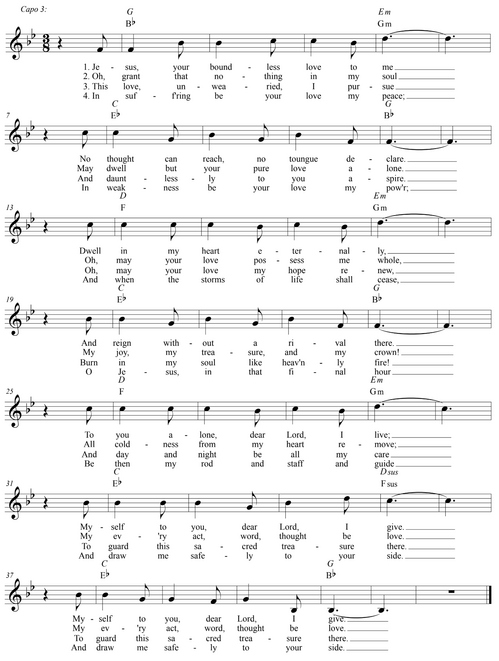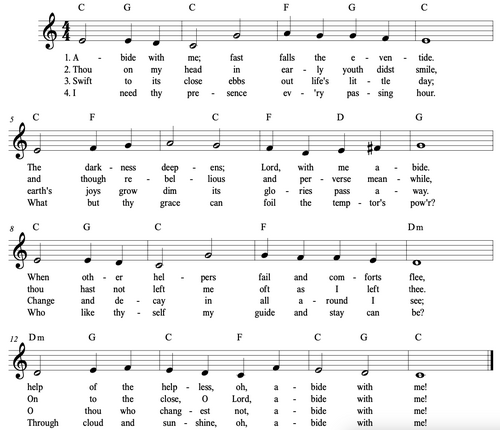September 28th, 2025
Do you have an event from your childhood that you perceive very differently now than you did as you went through it?

Focus 4 | After It Happens
Just because you're through it doesn't necessarily mean you're done with it.
Now that you've answered the icebreaker question, here's another to consider - this one about "getting over it":
See what this Spotlight is focused on.
So far in this series, we've seen that
Tap on the words "Focus 4" in the image below to read this Spotlight's summary.
So far in this series, we've seen that
- Unpredictable, uncontrollable, unfortunate things happen and God uses them to draw near to us with his grace.
- The struggle can begin before those things happen, as worry or fear of what might come tries to control us. Love - from God and for others - is the antidote.
- In the middle of "going through it," we have a God who doesn't avoid pain or struggle, but shows us the goodness of being with him no matter the circumstance.
Tap on the words "Focus 4" in the image below to read this Spotlight's summary.
Hopefully that makes enough sense to get you going. Say this prayer together as you transition into the Worship portion of this Spotlight:
Lord,
We endure, we pass through, and we know
that bad things don't last forever.
But they do last - they stick with us
in more ways than one.
Help us as we reflect, process, and recover
and fill us with hope.
Amen.
Lord,
We endure, we pass through, and we know
that bad things don't last forever.
But they do last - they stick with us
in more ways than one.
Help us as we reflect, process, and recover
and fill us with hope.
Amen.

Read the story of Jesus reaction after something pretty awful happened.
Matthew 14:1–14 (NIV)
John the Baptist Beheaded
14 At that time Herod the tetrarch heard the reports about Jesus, 2 and he said to his attendants, “This is John the Baptist; he has risen from the dead! That is why miraculous powers are at work in him.”
3 Now Herod had arrested John and bound him and put him in prison because of Herodias, his brother Philip’s wife, 4 for John had been saying to him: “It is not lawful for you to have her.” 5 Herod wanted to kill John, but he was afraid of the people, because they considered John a prophet.
6 On Herod’s birthday the daughter of Herodias danced for the guests and pleased Herod so much 7 that he promised with an oath to give her whatever she asked. 8 Prompted by her mother, she said, “Give me here on a platter the head of John the Baptist.” 9 The king was distressed, but because of his oaths and his dinner guests, he ordered that her request be granted 10 and had John beheaded in the prison. 11 His head was brought in on a platter and given to the girl, who carried it to her mother. 12 John’s disciples came and took his body and buried it. Then they went and told Jesus.
Jesus Feeds the Five Thousand
13 When Jesus heard what had happened, he withdrew by boat privately to a solitary place. Hearing of this, the crowds followed him on foot from the towns. 14 When Jesus landed and saw a large crowd, he had compassion on them and healed their sick.
Matthew 14:1–14 (NIV)
John the Baptist Beheaded
14 At that time Herod the tetrarch heard the reports about Jesus, 2 and he said to his attendants, “This is John the Baptist; he has risen from the dead! That is why miraculous powers are at work in him.”
3 Now Herod had arrested John and bound him and put him in prison because of Herodias, his brother Philip’s wife, 4 for John had been saying to him: “It is not lawful for you to have her.” 5 Herod wanted to kill John, but he was afraid of the people, because they considered John a prophet.
6 On Herod’s birthday the daughter of Herodias danced for the guests and pleased Herod so much 7 that he promised with an oath to give her whatever she asked. 8 Prompted by her mother, she said, “Give me here on a platter the head of John the Baptist.” 9 The king was distressed, but because of his oaths and his dinner guests, he ordered that her request be granted 10 and had John beheaded in the prison. 11 His head was brought in on a platter and given to the girl, who carried it to her mother. 12 John’s disciples came and took his body and buried it. Then they went and told Jesus.
Jesus Feeds the Five Thousand
13 When Jesus heard what had happened, he withdrew by boat privately to a solitary place. Hearing of this, the crowds followed him on foot from the towns. 14 When Jesus landed and saw a large crowd, he had compassion on them and healed their sick.
Reflect on the story with this video.
Pray this prayer that is based on the story.
Choose one person to read the prayer.
Merciful Lord,
You know what it is to receive bad news.
You know what it is to feel pain and to need space.
You showed us that even the Son of God needed time to step away,
to breathe, to grieve, to seek the Father in silence.
We thank you that our grief is not foreign to you.
You do not ask us to be strong when we are weak.
You do not shame us for tears or for silence.
Instead, you welcome us into your presence,
and you carry what we cannot carry alone.
We pray for those here and far away
who are in the aftermath of difficult things:
who are stunned by tragedy,
who are weighed down by what happened,
who are trying to find their next step in the dark.
Give them the grace of rest.
Give them companions who will not hurry their healing.
Give them hope that does not erase pain, but stands with them inside it.
Lord Jesus, just as you withdrew to a solitary place,
draw near to us when we retreat.
And when the time comes to return,
renew us with compassion that can flow into the lives of others.
Until that day when you wipe away every tear,
teach us to honor our grief and to trust your promise.
We rest our hearts in you.
Amen.
Choose one person to read the prayer.
Merciful Lord,
You know what it is to receive bad news.
You know what it is to feel pain and to need space.
You showed us that even the Son of God needed time to step away,
to breathe, to grieve, to seek the Father in silence.
We thank you that our grief is not foreign to you.
You do not ask us to be strong when we are weak.
You do not shame us for tears or for silence.
Instead, you welcome us into your presence,
and you carry what we cannot carry alone.
We pray for those here and far away
who are in the aftermath of difficult things:
who are stunned by tragedy,
who are weighed down by what happened,
who are trying to find their next step in the dark.
Give them the grace of rest.
Give them companions who will not hurry their healing.
Give them hope that does not erase pain, but stands with them inside it.
Lord Jesus, just as you withdrew to a solitary place,
draw near to us when we retreat.
And when the time comes to return,
renew us with compassion that can flow into the lives of others.
Until that day when you wipe away every tear,
teach us to honor our grief and to trust your promise.
We rest our hearts in you.
Amen.
Life often confronts us with things we cannot predict, control, or explain. Jesus himself experienced this. We are not asked to pretend it doesn’t hurt. Instead, we are invited to bring it into God’s presence and not carry it alone.
Step 1 – Sharing:
Step 2 – Silent Holding:
Step 3 – Spoken Prayer:
Step 4 – Blessing One Another:
After everyone has shared and been prayed for, close by saying together:
Step 1 – Sharing:
- Each person takes a turn to briefly share one or two “unpredictable, uncontrollable, or unfortunate” things they are going through right now, or something weighing on their heart.
- The others listen silently, without advice or fixing: only with love and attention.
Step 2 – Silent Holding:
- After each person shares, the group sits in quiet for a short pause, silently lifting that person’s burden to God.
Step 3 – Spoken Prayer:
- After the silence, one of the listeners prays aloud for the person who just shared.
- The prayer can be simple:
- “Lord, have mercy on [Name].”
- “God, hold this sorrow with them.”
- Or whatever you'd like to say.
Step 4 – Blessing One Another:
After everyone has shared and been prayed for, close by saying together:
- God, you are our refuge and strength, an ever-present help in trouble.
Carry what we cannot carry.
Be with us in what we cannot control.
And teach us to trust your love, even here.
Amen.
Feel free to submit a prayer request by filling out the below form.
(If you choose to make your request public, you'll see it display in the Current at the end of the Spotlight along with anyone else who did the same.)
(If you choose to make your request public, you'll see it display in the Current at the end of the Spotlight along with anyone else who did the same.)
Pray through your requests—together—as a group.
After submitting your requests in the above form, take some time to share with your group whatever requests the group might have for this week.
After submitting your requests in the above form, take some time to share with your group whatever requests the group might have for this week.
Close with the song, "Abide with Me."

Let's wrap things up by taking a look at what's Current at Illume.
Tap on the buttons in the frame below to see what’s currently happening at Illume—information on everything from current and upcoming online content to live events and opportunities to serve in the community can all be found here.
Tap on the buttons in the frame below to see what’s currently happening at Illume—information on everything from current and upcoming online content to live events and opportunities to serve in the community can all be found here.
Posted in On Letting It Happen

No Comments